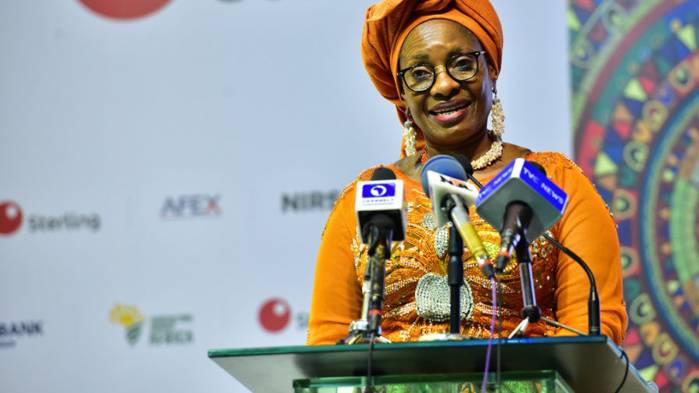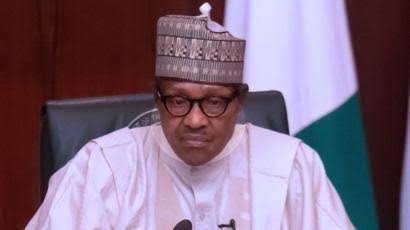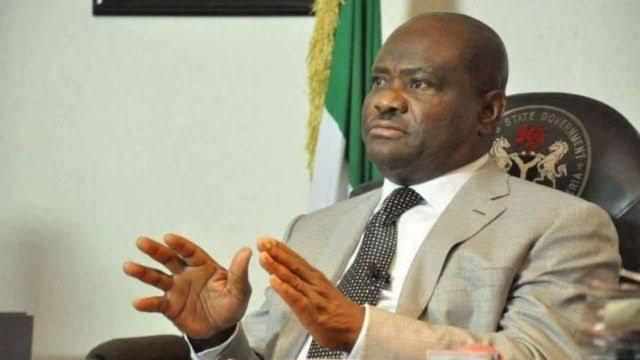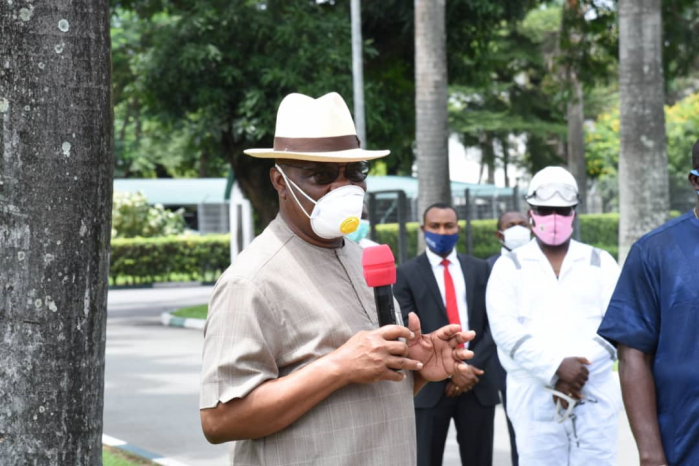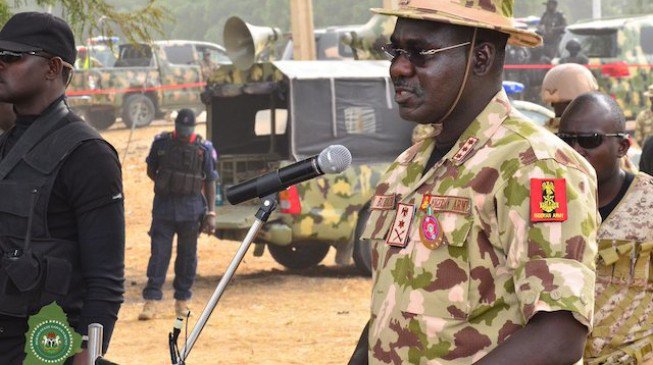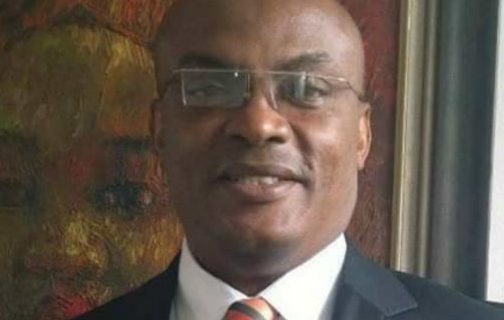It was just sheer coincidence that this comment and former Governor of Kaduna State Abubakar Dangiwa Umar’s timely letter to President Muhammadu Buhari on his alleged “nepotism pushing Nigeria to the brink” hit the public space almost at the same time.
The organic content of this editorial had been written before the retired soldier’s bombshell, which was widely reported yesterday. And so Umar’s love letter to the President only confirmed the constancy of truth at such a time as this: that the biggest trouble with the Buhari administration is the elephant in the room variously tagged as “lopsided appointments,” ‘‘nepotism,” “sectionalism”, ‘‘parochialism,’’ etc. This newspaper spotted this again last week in the context of Buhari’s consistency in failing to respect the federal character provision in the country’s constitution. The provision is designed to address lopsided appointments and build a peace that has eluded us since independence almost 60 years ago.
This is the origin of our comment again before Umar’s intervention. The Federal Inland Revenue Service (FIRS) the other day retired nine directors contrary to Buhari’s reported but unconfirmed order. The development, though bizarre in its entirety, is reminiscent of his penchant for the violation of the federal character principle and in turn the constitution, in several appointments made since 2015. The brazen, yet undisguised attempt to deepen sect and sectionalism along our fault lines is undemocratic, unconstitutional, perfidious and highly condemnable.
Nigeria is no doubt a complex and complicated diversity. It spans across culture, ethnicity, language, religion and natural resources among others. Across its 36 states, plus the Federal Capital Territory (FCT) and 774 local government areas are more than 350 nations that are seeking self-actualisation and a sense of belonging in the forced yet inconvenient contraption called Nigeria. Our founding fathers and minds behind our constitution recognised the primacy of heterogeneity and inclusiveness in the making of peace and progress of the country. Specifically, the 1979 Constitution adopted the federal character principle to orchestrate elusive peace, equity and stability. It was to make amends for inter-ethnic distrust, dominance, rivalry, conflicts and wars. Section 14 (3)(4) and the Third Schedule, Part 1(c) of the Constitution spell out the principle in clear terms. And to ensure implementation, the Federal Character Commission was in 1996 established – to manage the peace process.
For clarity, the Section 14 (3) of the 1999 Constitution, as amended, provides in detail that: “the composition of the government of the federation or any of its agencies and the conduct of its affairs shall be carried out in such a manner as to reflect the federal character of Nigeria and the need to promote national unity, and also to command national loyalty, thereby ensuring that there shall be no predominance of persons from a few states or from a few ethnic or other sectional groups in the government or in any of its agency.”
Indeed, the inherent goal was to broaden participation in all areas of power, enhance inclusiveness and douse alienation of segments in a truly federal system. Notwithstanding the errors of commission or omission that have for long kept the federal character provision in Chapter II of the 1999 Constitution, and therefore non-justiciable, commonsense dictates that national integration is only possible where there are justice, fairness and equitable distribution of our common patrimony.
Buhari’s predecessors in office had been careful about the sanctity of this constitutional provision, however imperfect. Amid relentless claims of marginalisation by minority groups, the federal character was also leeway for celebrating mediocrity and gross incompetence within the public civil service. Some notable Nigerian leaders of thought already opined that the ineffectual federal character principle should be scrapped and replaced by a merit-based system. But the constitution is still the constitution.
The point at issue today, is that the subsisting constitutional provision has been honoured in the breach than in its observance by the Buhari-led administration. The federal system has been so bastardised that most of Buhari’s appointments had no recourse to either equitable distribution or merit. What is worse, even the composition of the Federal Character Commission itself has no regard for federal character. If Senate confirms new nominees to the commission today, both the chairman and the secretary would be from the North. This is incredible.
READ ALSO: You Have Polarised Nigeria, Col Umar Tells Buhari
Besides, even the Federal Capital Territory, Abuja touted as our symbol of national unity now has a federal character challenge. Both the Minister of FCT and the Executive Secretary of the Federal Capital Development Authority (FCDA) hail from the north – (Adamawa and Niger states). That is the so-called Nigeria’s ‘‘Centre of Unity.’’ The stories are also out there about how the first qualification for teaching and non-teaching jobs at the National Open University’s is where the applicant comes from – north or south – and the religion – Muslim or Christian. The system is so toxic.
It should, therefore, not surprise anyone that the FIRS recently leveraged an abrogated provision to exit nine directors and have them immediately replaced by northerners. President Umaru Yar’Adua had instituted a civil service rule to retire directors that have already spent eight years in the office. President Buhari repealed the same provision in 2016. The sitting Chairman of FIRS, Muhammad Nami, literally went back in time just to retire the directors from the south, only to have them replaced by people of his clan.
Meanwhile, there are much more around Abuja to widen the eyebrow. The Department of State Security (DSS), Defence Intelligence Agency (DIA), National Intelligence Agency (NIA), Police Force, Air Force, Nigerian Army, Customs, Immigrations and Correctional Service, Nigeria Security and Civil Defence Corps (NSCDC) , Defence Ministry, National Security Adviser, Nigerian Ports Authority, NIMASA, Nigerian Shippers’ Council, FAAN, NCAA, EFCC, NFIU, Code of Conduct Bureau, (CCB), Code of Conduct Tribunal (CCT), and so on, all express the gross imbalance and dominance by northerners in an unprecedented manner. What of the Nigeria National Petroleum Corporation (NNPC)? The Pan Niger Delta Forum (PANDEF) just days ago reeled out the positions and names of 20 management positions held by northerners in the NNPC. They are from the group managing director (GMD) to director of the Department of Petroleum Resources (DPR). They superintend over crude oil settled in Akwa Ibom, Delta, Rivers, Bayelsa, Edo, Ondo, Imo, and Abia.
According to the body, entire southern Nigeria was allotted only three top management positions in the NNPC. The oil-producing zones of South-south, South-east, and South-west are left with one chief operating officer position each, and a few senior and middle-level management positions in peripheral and incidental subsidiaries, departments and divisions of the corporation. To say the least, the northernisation of federal offices is legendry and a daylight assault on merit or national integration. That was the warning signal Umar too spoke to last Sunday.
Lest we forget, at the moment, the three arms of government, (executive, legislature and the judiciary) are headed by citizens of northern extraction who are also Muslims in this same multicultural setting.
More important, let’s not get it twisted, the flagrant disregard of the federal character principle is an attack on the constitution. The Section 14(4) of the 1999 Constitution states: “The composition of the government of a state, a local government council, or any of the agencies of such government or council or such agencies shall be carried out in such manner as to recognise the diversity of the people within its area of authority and the need to promote a sense of belonging and loyalty among the peoples of the federation.” Our leader should be reminded that the framers of our constitution were very conscious of the diversity of our country and deeply appreciated the need to give everyone a sense of belonging, failing which the very fabric of the country could be torn into pieces. Why the weight of this consideration is always lost on this government or this President beats imagination.
It was at this time five years ago that Buhari concluded his inauguration speech with the memorable quote: ‘‘I belong to everybody; I belong to nobody.’’ Nigerians already know better and could see through his parochial and clannish sentimentality. His is a presidency that has for five years belonged more to northerners than to all Nigerians – the electorate. If not, let Nigerians see fairness, equitable distribution of appointments to our best hands across the country, and give every member of this entity a sense of belonging. It is a step in the right direction to secure the future of one Nigeria by respecting the letter and the spirit of the constitution, which Buhari has on two occasions sworn to defend. It is hoped that our leader realises the consequences of a breach of the organic law of the land – the constitution.
* This Editorial was published by The Guardian on Tuesday, June 2, 2020.


